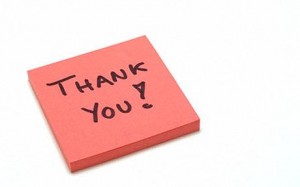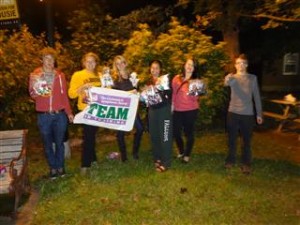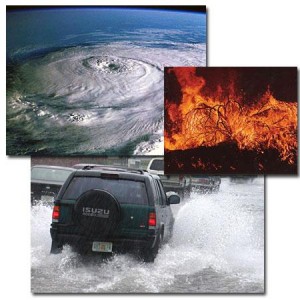♫ Ooh-hoo-hoo, I feel my temp’rature rising
Help me I’m flamin’, I must be a hundred and nine
Burnin’, burnin’, burnin’ and nothing can cool me, yeh
I just might turn to smoke but I feel fine… ♫
Lyrics and music by Dennis Linde and Arthur Alexander, recorded by Elvis Presley.
This is my friend Bob Denny’s latest report on WHAT’S HOT AND WHAT’S NOT IN THE LEGAL PROFESSION:
This is our 24th annual report on what’s going on in the legal profession, not only in the United States but also in other parts of the world. Like all our previous reports, it is based on information we compile throughout the year, not just from clients but also from many other sources including discussions with firms’ management and other leaders in the profession.
As always, some of our findings are obvious. Others are not but we feel they may be significant.
What is most important to recognize is that, more than ever before, the outlook for each firm will vary depending on its size, practice areas, strategic focus and geographic market(s). The resulting picture is a montage of a profession that is in a state of flux and will continue to be so, not just in 2013 but for years to come.
PRACTICE AREAS
Red Hot
- Energy. At many firms throughout the U.S. but particularly in Texas, Ohio, West Virginia and Western Pennsylvania. Oil & gas are the main drivers while air and water quality continue to be environmental issues.
- Health Care. Most of the Affordable Care Act (“Obamacare”) goes into effect 1/1/14 but there are still questions about certain issues. A major one for employers, their advisors, most states and even the federal government is setting up the exchanges and whether or not some employers will drop insurance altogether.
- Sports Law. As discussed in Steve Taylor’s excellent lead article in November Of Counsel, it’s not really a separate area because it involves various practice areas such as M&A, Labor & Employment, Intellectual Property and Advertising. (more…)
♫ Like a square peg in a round hole. No, don’t ever fit in.
So you don’t beg, or sell your soul. Oh, you’re stronger within …♫
– Music and Lyrics by B. Knight, P. Simm, recorded by Beverly Knight.
This is traditionally the time of year that lawyers contemplate new careers. Accordingly, I have reproduced an article I wrote for the Canadian Bar on alternative careers for lawyers:
I have friends in large law firms who don’t understand why someone who worked their way through law school wouldn’t want to practise law in a big law firm. On the other hand, I have met many others who couldn’t imagine working for a large law firm. Accordingly, this column is written for all the square pegs out there who are searching for other ways to make a living with a law degree other than falling into the maw of the big firm private practice.
Danielle D. Hansen stated, “Law school stresses critical, analytical, and logical thinking and writing skills, as well as impartiality and the ability to see issues from all angles and points of view. You were also taught how to survive and thrive in an intensely competitive and stressful atmosphere. You may take for granted the basic skill set learned in law school, but these skills are not as common in the workforce among non-lawyers as you may think.”
Why seek an alternative career with your hard-earned legal skills? For one, the time demands of private practice may simply be too much. There are many people whose personal circumstances require them to balance other requirements alongside a career. Of course, while the big example here is working moms, there are many other lawyers who face similar time demands that rule out a traditional practice.
But aside from time constraints there are many other reasons for seeking out a different career. You may have an entrepreneurial bent – venturing into the hustle and bustle of a business career may appeal to the high-octane side of your personality. Others may be more introspective – a life in education, research and writing may be the quiet intellectual challenge you seek.
You may have a dual interest, in which case blending your law background with your other interest allows you to remain active in each. For example, if you have an HR background, then coaching or executive search careers in the legal area may be a good suggestion. Others with an interest in labour negotiations may wish to work in either the labour or management side of things.
Of course, many lawyers become mediators, judges and arbitrators. Increasingly these days we are seeing lawyers combine technology with law in consulting, programming, forensic or business careers that blend all or some of these [the writer has absolutely no experience here 🙂 ]
All governments have need of lawyers in many different roles. So do international bodies such as the UN (I once met a Canadian lawyer who was working in international business law for the UN in Vienna). Banking and finance offer opportunities for those who find that environment interesting and a challenge. You could become an ex-pat and find yourself working in Hong Kong, Dubai or Singapore. I met a lawyer who was working for NASA when the issues of a capsule’s right to overfly nations were being dealt with.
A few of us become writers such as Scott Turow, William Deverell and John Grisham. Some of us go into social causes and work for organizations that seek to change the world.
In fact, there are so many opportunities outside of the traditional practice of law that you don’t have to be a square peg in a round hole; you can be stronger within by finding a career that is fulfilling, soul-satisfying and challenging.
This article originally appeared in the Canadian Bar Association, British Columbia branch’s publication BarTalk.
♫ This night they taught me to believe
to offer thanks to all living things…♫
Lyrics and music by: Jack Swamp and Joanne L. Shenandoah, recorded by Joanne L. Shenandoah.
This is a post that Laura Calloway and I wrote for www.slawtips.ca. I am grateful for the opportunity to post it here as well:
In writing this tip, we are cognizant that today is American Thanksgiving and that Canadian Thanksgiving was not all that long ago. Of the authors, one of us is American and one is Canadian. Accordingly it seemed appropriate to focus today’s tip on the act of giving thanks.
What is giving thanks? It is also called gratitude, thankfulness, gratefulness or appreciation. It is a feeling of genuinely and positively acknowledging the acts of another. It costs nothing but means everything. In some cases it can never be felt or acknowledged by those whose acts you are appreciating – such as being grateful for the selfless acts of another (such as acknowledging those who gave all at Remembrance Day).
It resonates in all major religions. In Judaism, you are grateful for acts of human kindness and goodness. The Eucharist is the most important rite in the Orthodox, Catholic and Anglican churches: the name arises from eucharistia – the Greek word for thanksgiving. In Islam, the month of fasting of Ramadan is intended to create a state of gratitude.
Studies have shown that grateful people have positive mental health: they are happier, less depressed, less stressed and have more satisfaction with their life. They sleep better. They cope better. Grateful people are more likely to sacrifice individual gains for community well-being. They are altruistic.
Can you increase or enhance your sense of gratitude? Studies have shown that the act of writing and delivering a letter of gratitude has a big effect on improving someone’s short-term quality of life. Longer term effects are generated by writing and keeping a gratitude journal – or daily record of three things you are thankful for each day. Participants in these studies voluntarily continued their gratitude journals long after the study was over.
We can set our deeds to the music of a grateful heart, and seek to round our lives into a hymn — the melody of which will be recognized by all who come in contact with us, and the power of which shall not be evanescent, like the voice of the singer, but perennial, like the music of the spheres.
(William Mackergo Taylor, reported in Josiah Hotchkiss Gilbert, Dictionary of Burning Words of Brilliant Writers (1895), p. 290.)
(this was originally posted on http://tips.slaw.ca/2012/practice/giving-thanks/).
♫ Now’s the time that we need to share
So find yourself, we’re on our way back home… ♫
Lyrics and music by: Rick Davies and Roger Hodgson; recorded by Supertramp.
At the present time, there are large corporate fund raising events going on to benefit large united charitable institutions and programs. These fundraising programs have large and well-organized marketing and corporate donation programs and volunteer events being undertaken by generous and well-meaning people in all sorts of corporations and businesses.
Not to take away from the efforts of these big united programs, there are many other much smaller-scale fundraising programs being undertaken by no less well-meaning people, from smaller groups to individuals.
These can range from community hockey and sports teams, educational fundraising efforts to individual medical fundraising campaigns such at the Team in Training for Leukemia and Lymphoma.
I urge lawyers to consider matching their charity program(s) to the size of their practice. Remember what it was like to start up your small firm? Imagine those individuals in smaller fundraising campaigns who are facing uphill fundraising hurdles. These smaller fundraisers would appreciate a bit of help from those out there who have faced similar hurdles when setting up in practice. The big united programs benefit from the big downtown corporate programs. Now is the time we need to share – please keep these little fundraisers in your own home community in mind when it comes to allocating your charity dollars. You can help make their day.
♫ Without a warning, you’re outta control.
The ground shakes and the oceans roll-
This is the big one, there’s no way to run…♫
Lyrics and music by: Gerry House, Devon O’Day, recorded by George Strait.
This is a wonderful guest post from Robert Denney. While the east coast was being hammered by Sandy, the west coast was experiencing earthquakes (fortunately the impact was minor and there were no tsunamis). In either case, these events only brought to the forefront the need for a disaster plan in each law office. Here is Bob’s advice in this regard:
In addition to wreaking havoc and even tragedy in the lives of millions of people and disrupting the operations of countless law firms and businesses, Hurricane Sandy also confirmed the need for firms and businesses to have emergency or disaster plans. Unfortunately some did not and others, including even the New York Stock Exchange, learned their plans were inadequate.
There are two types of disasters that require emergency planning:
- impending disasters such as a major storm or flood which can usually be predicted and prepared for
- other disasters such as fires and explosions which occur without warning. (more…)























